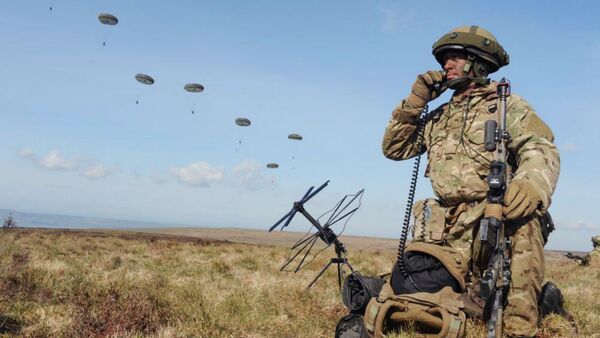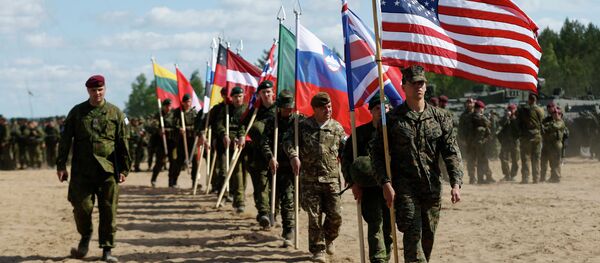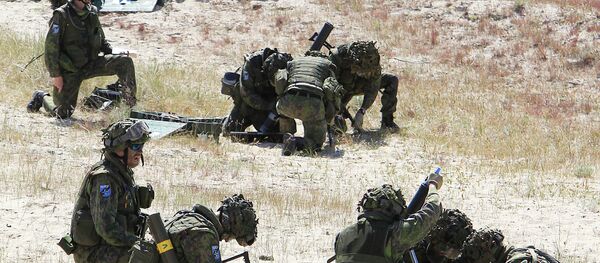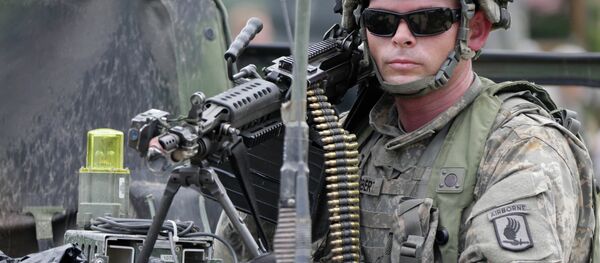Washington has made no secret about its Russian suspicions. In July, the Pentagon unveiled its new National Military Strategy, in which it named Moscow as one of its primary "state adversaries." This is based largely on the oft-repeated – though unproven – allegations of Kremlin involvement in Ukraine’s civil war, something Moscow has repeatedly denied, and of which Washington has yet to produce proof.
That hasn’t stopped US officials.
"Russia’s military actions are undermining regional security directly through proxy forces," the report reads.
Believing Russia to be a grave threat, the Army’s top commander in Europe is now calling for significant upgrades to the military’s information technology.
"This is about speed, to give our political leaders options," Lt. Gen. Ben Hodges told Breaking Defense.
"[If the Russians move], things are going to happen fast. We’re not going to have six months to get ready…and then deploy into Latvia. It’s going to be come as you are, plug and play."
According to Hodges, the Army needs three key components that it’s currently missing. Secure FM radios, a shared data network to allow commanders to better coordinate with troops on the ground, and a streamlined process for launching artillery fire.
"Right now we do not have, universally, any of those three," he said. "Call for fire, calling in medevac, making sure everybody knows where everybody’s at…it just makes a lot more challenging. People get killed, people get hurt, or you fail the mission."
And that equipment is desperately needed, since the specter of Russian aggression is never far away.
"The infrastructure is in place east of the Donbass for a very rapid, large buildup," Hodges added.
But the US isn’t just drumming up fears about Ukraine. Hodges also expounded on the rather alarmist belief that Moscow poses a threat any neighboring regions.
"Ukraine is only a symptom of what’s going on. Russia believes that they’re entitled to a sphere where they can dictate what countries do.
"In order to deter a situation where they might decide to deny access, launch a snap exercise, and Little Green Men start appearing in Latvia, for example, or they start to seal off the gap between Kaliningrad and Belarus, we’ve got to be there," Hodges said.
While the US continues to paint Russia as a danger in order to promote its own global aims, the Kremlin has repeatedly pointed out the absurdity in such allegations.
"I find it funny to hear how Russia is being accused of military aggressiveness," Russian Chief of Staff Sergei Ivanov told the Financial Times when news of the US National Military Strategy first broke. "There is an expression, 'this is nothing but raving nonsense.'"
"It is a psychological disorder to claim Russia will invade the Baltic States," he added.





